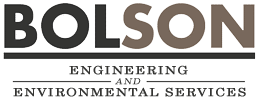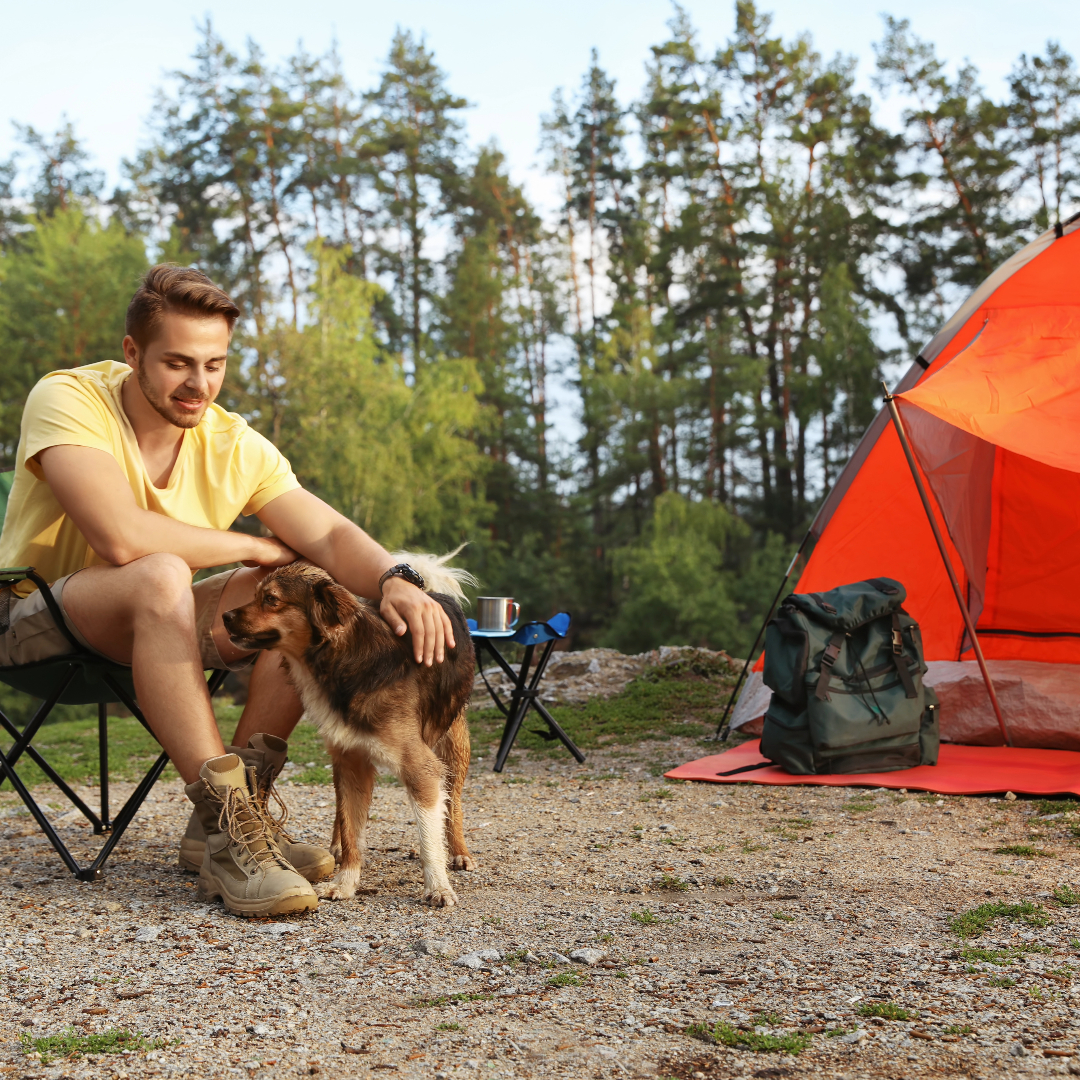With the increasing demand for outdoor recreational spaces, campground business owners have many opportunities to expand and elevate their services. With proper planning and execution, these growth opportunities will maximize the camping experience for campers. Whether it’s a campground expansion or offering elevated services (i.e. fishing tournaments, parades, treehouses, yurts, geodomes, jumping pillows), there is a need for proper planning and execution, to maximize your campground business potential. Here we will explore how you can grow and scale your existing campground business.
Evaluating Your Current Campground
The first key step in growing and scaling your campground business is conducting a thorough analysis of the existing campground to understand its current performance and capacity. Running a campground SWOT analysis to identify your campground business’ strengths, weaknesses, opportunities, and threats that the campsite faces before planning the expansion. Diversifying campground services will require market research and planning in order to save yourself from serious growing pains down the road.
Here are some examples of strengths, weaknesses, opportunities, and threats that a campground business might face with undertaking a new development.
- Strength: You have been in business for several years and you have established solid seasonal campsites that are full every year.
- Weakness: The area of the proposed expansion is steeply sloped and will need additional fill which will add to the overall costs and impact your bottom line.
- Opportunity: The winter camping potential is largely untapped in this market and has potential to increase your revenue.
- Threat: There is potential for residents to push back on the campground expansion due to increased traffic and safety issues.
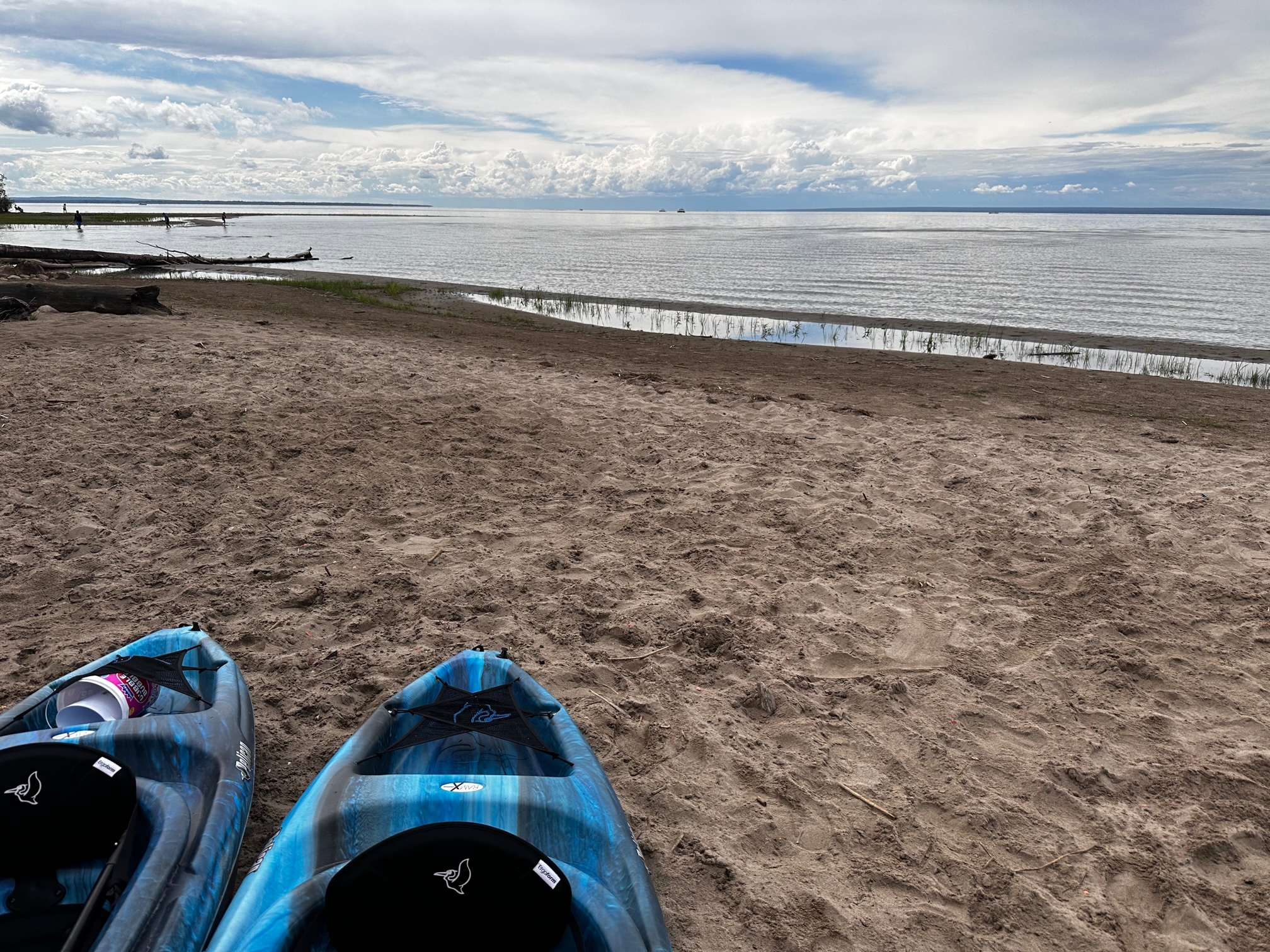
Spruce Point Park near Kinuso, Alberta
Strategic Planning for Growth
Strategic planning plays an integral role in the process of growing and expanding a campground, as well as any other development project that one may embark upon. It encompasses a comprehensive approach that aims to identify, assess, and mitigate potential risks that may arise during the development process. Evaluating the risks includes understanding the physical characteristics of the campground (i.e. soil type) and the potential economic implications. It becomes imperative to underscore the significance of strategic planning, as it serves as a guiding growth strategy that can maximize profit margins or eliminate short term pains such as cash flow problems. Your campground master plan (aka business plan) will have an in-depth roadmap for your expansion and the potential campground development challenges that lie ahead.
Campground Master Planning
Developing a comprehensive master plan that effectively outlines the vision, objectives, and strategic roadmap for the expansion of your campground services serves as the backbone of your project. By taking a well-thought-out approach, you can effectively diversify and enhance your services to cater to various types of clientele. This master plan will provide you with a clear vision of where you want to take your campground services and how you plan to achieve those goals.
Moreover, implementing a phased approach within your master plan can prove to be quite beneficial. Not only does it help you manage costs more efficiently, but it also provides you with the opportunity to assess the impact of each phase of your expansion project. By breaking down the process into smaller, manageable stages, you can closely monitor and evaluate the outcomes and effects at every step, thus ensuring that your project stays on track and aligned with your overall goals. Many private campground developments start small and expand their services over time with increasing revenue.
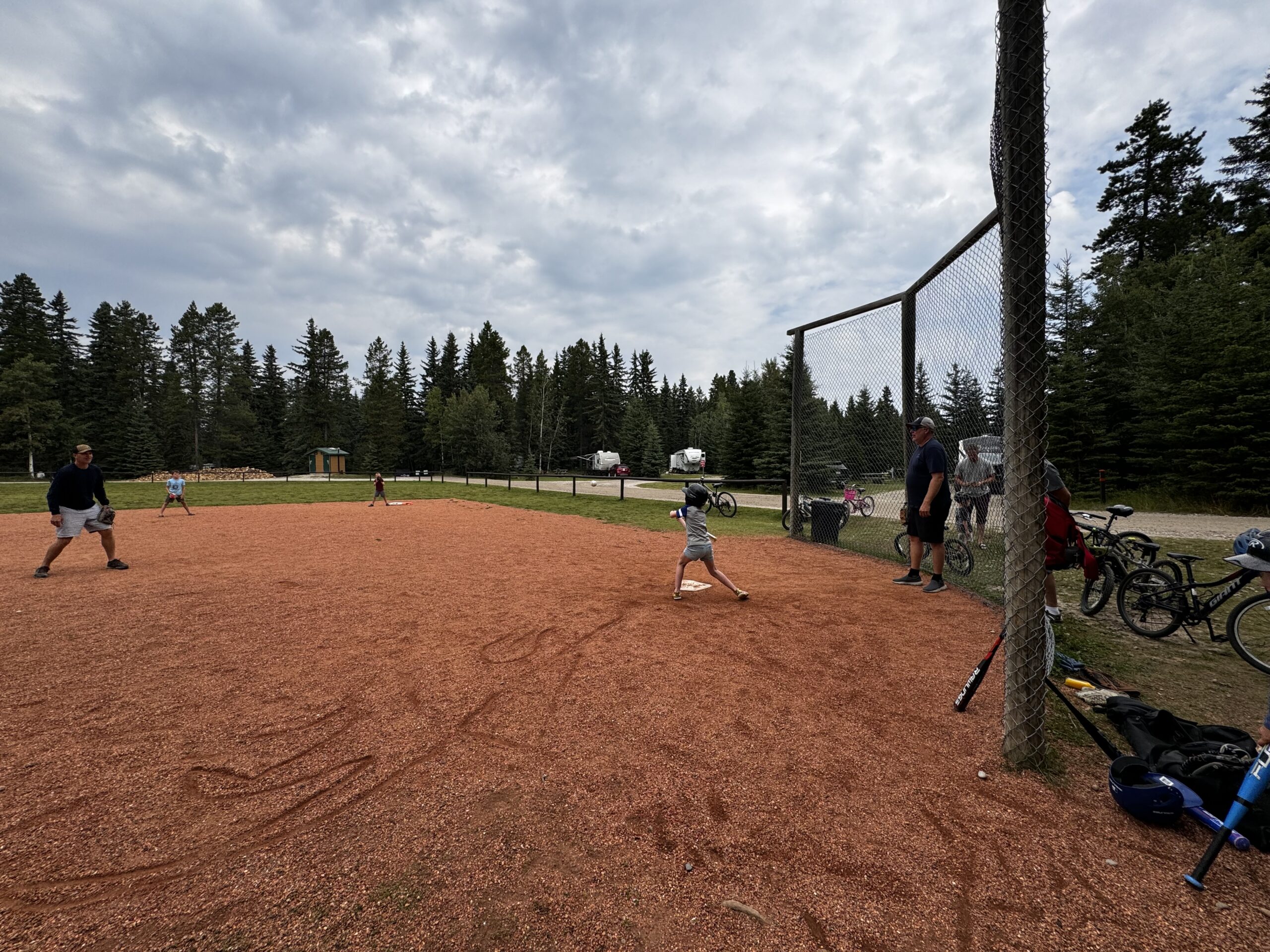
Wilderness Village Resort near Rocky Mountain House, Alberta
Sustainable Practices
There is higher demand for campgrounds to incorporate more sustainable and eco-friendly practices to minimize environmental impact. Not only is this appealing to eco-conscious campers, eco-friendly practices can lower operating costs.
Here are some sustainable practices that have a high impact on your development:
- Harvesting rainwater is a great way to deal with droughts and ensures that your water well doesn’t run dry.
- Low flow toilets, low flow shower heads and pay showers with time limits will conserve water
- Solar powered charging stations
- Solar generators
- Using biodegradable soaps in the bathrooms
- Composting stations
There are many sustainable practices, some of which require substantial investment. You will have to determine if the investment make sense for your overall business plan.
Regulatory Compliance
Alberta campground regulatory compliance is a large component of a campground expansion in which you will need to adhere to local bylaws, building codes, and environmental regulations. Engaging with local authorities and stakeholders early in your campground project is essential to garner support and remain compliant. Each county has its own set of campground development bylaws. The municipal bylaws will outline the density, size of campsites and other underground infrastructure required for your campground project.
Diversifying Services
Campground expansion comes the opportunity for diversifying services and amenities. Proper diversification and planning can lead to a sustainable bottom line while enhancing your campers’ experience. You will also need to assess what kind of infrastructure is required to support your campground expansion and new services.
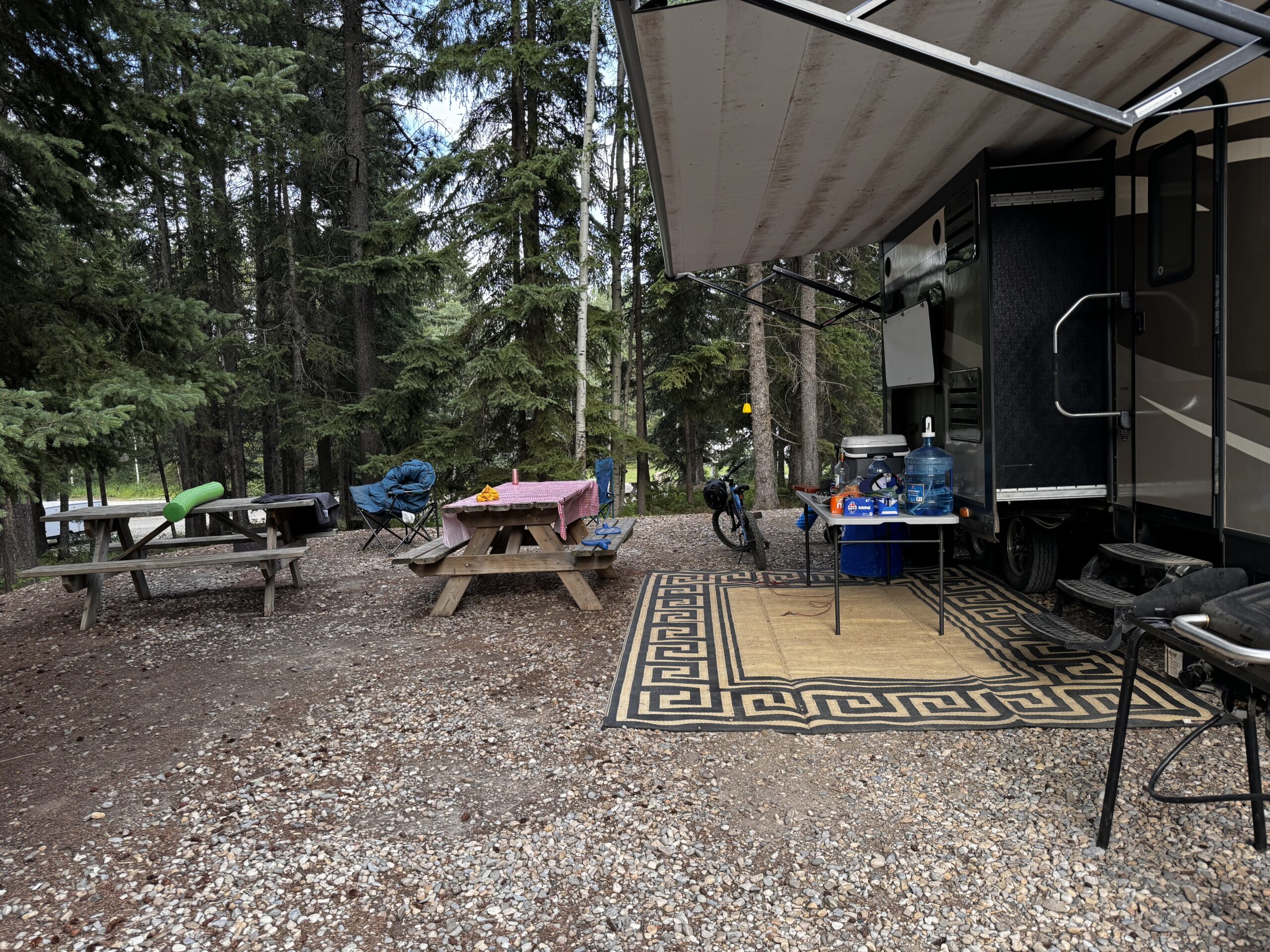
Wilderness Village located near Rocky Mountain House, Alberta
Campground Accommodation Options
Campground business owners can improve their accommodation options by introducing a mix of tenting, RVing, and glamping options to cater to a broader audience. Tailoring campgrounds for tenting, rving and glamping will reel customers that are at different stages of their camping lifestyle. Finding the right mix of tent, rv and glamping sites will be a moving target. There are strategies in which campground businesses can be more adaptable to find the right campsite mix. For example, some campground owners have offered a “lock” fee that locks a specific site for the duration of their stay. Therefore, campground owners will have more flexible options to adjust the campsite reservation location for those who do not pay a “lock” fee in the event that the campground wants to accommodate large groups or oversized RVs.
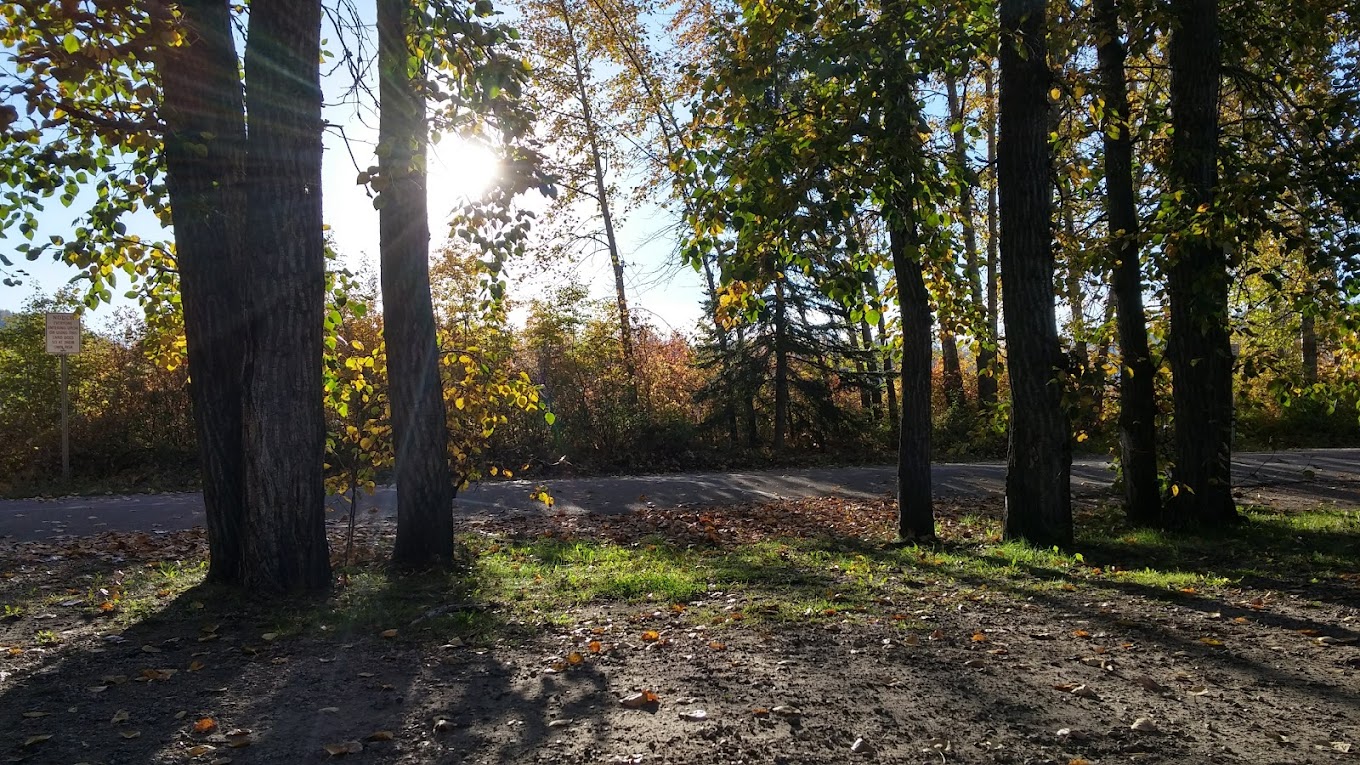
Devon Lions Campground near Devon, Alberta
Campground Amenities and Facilities
New amenities like playgrounds, swimming pools, marinas, restrooms, showers, hookups and communal areas will enhance the camping experience. Building recreational facilities to host and organize events and structured activities will also attract camping groups and families. Recreational facilities offer an endless supply of camper activities that will promote your campground business and enhance the camper’s experience. You will only be limited by your imagination.
Here are some ideas of campground activities and amenities seen across KOA campgrounds:
- Themed weekends such as Christmas in July, superheroes, artists, photographers, Whacky Olympics, Harry Potter, paws and claws, etc.
- Live entertainment such as local musicians or bands
- Chili cook-offs competitions
- Bingo halls
- Pancake breakfasts
- Parades where participants hand out candy to the kids
- Karaoke
- Custom ice cream flavors with unique names
- Mini golf
- Jumping pillow
- Olympics
- Train rides
- Movie nights for families
- Fishing derbies
- Food trucks
- Scavenger hunts
- Water wars
- Pig roast
- Wine tastings
- Bubble fest
- Swimming yoga
- Floating splash park (i.e. Witbit waterparks)
- Animal farm
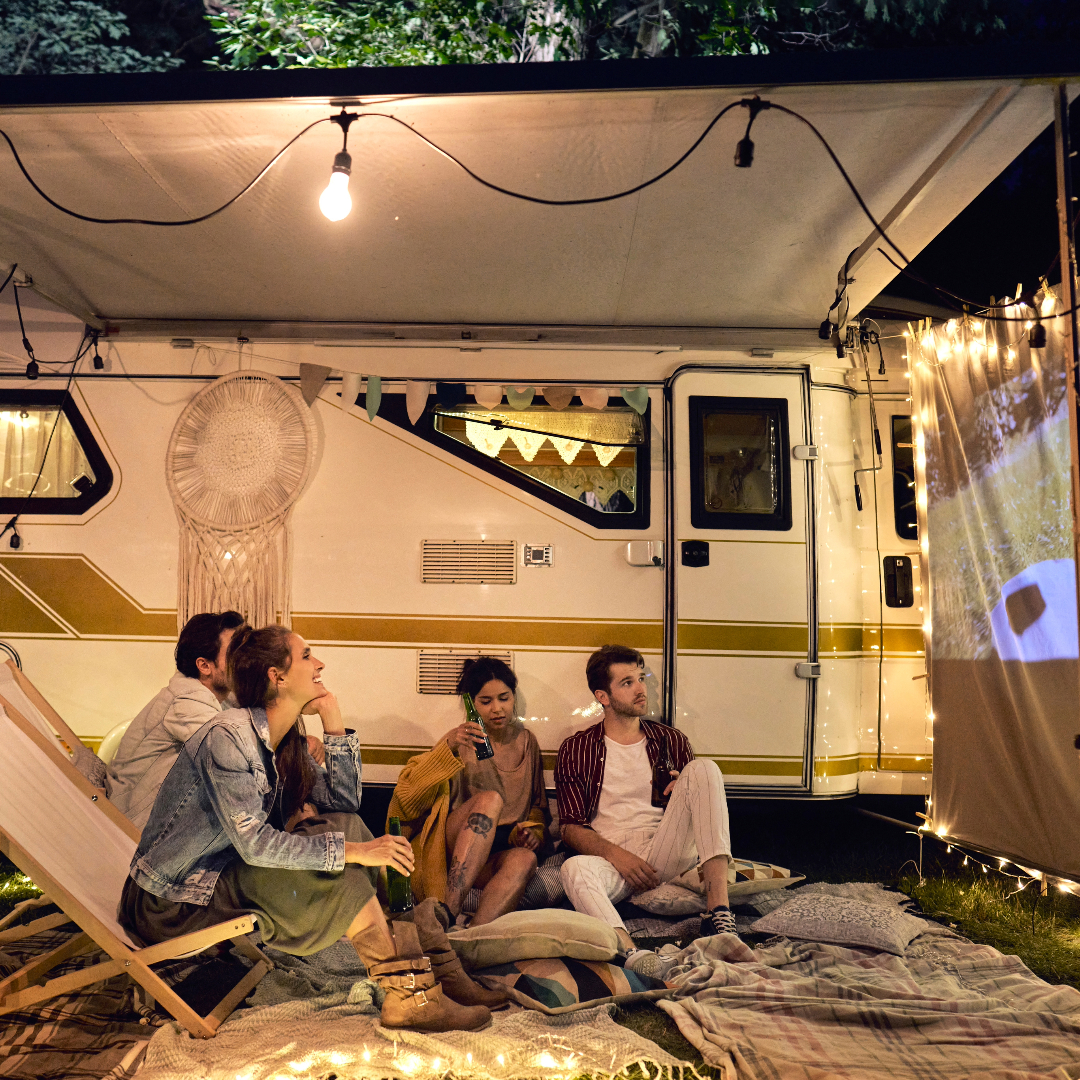
Campground Movie Night
As you can see the list is endless! By providing the infrastructure to support your outdoor recreational space your campers will form lasting memories and continue to return to your establishment every season. There are a number of resources that will help campground owners understand what the camper is looking for. Here are some blogs that will provide some camping experience insight:
Partnerships
There are opportunities to form partnerships with local businesses to offer unique experiences or services to campers. Local businesses can mutually benefit from each other. For example, a local charcuterie restaurant is a great option on for the glampers and RVs who like to dine on a meat and cheese platter with a glass of wine on Friday evenings. Pre-arranging for delivery to their campsite upon booking at your campground is a another way to make the process seamless and hassle-free. Do not underestimate these mutual beneficial business partnerships as this is a low cost form of marketing.
Marketing and Community Engagement
Community engagement will provide better marketing opportunities for campground growth. Engaging your community will also help understand the local demographic and what they are looking for in the camping experience. Your target audience will shape your marketing strategy and help you optimize your website with search engine optimization (SEO).
Digital Presence
Strengthening your online presence of the campground through a user-friendly website, online booking system, and active social media profile will be beneficial for the user and the campground business. All of these tools will effectively manage and promote your brand.
An online booking system on your website is equally important as it removes several pain points for the customer. Taking manual reservations by phone is painstaking for the customer and the business owner. It is time consuming for both parties and requires each person to be available at a designated time. An online reservation system offers the convenience of being available 24/7.
Here are several campground management systems that will simplify operating your business:
A user-friendly website should be tailored to your target audience with photos to match their expectations. Don’t underestimate the value of a campground blog full of camping recipes, activities, games, best camping gadgets, a guide to local restaurants, upcoming events, packing essentials, vanlife movement, campfire stories for kids, winterizing tips, etc.
Social media is great way to update campers on upcoming events, themed weekends and other activities. This will also reinforce your campground brand by staying in front of your target audience.
Community Involvement
Other marketing ideas could include hosting community events, workshops, or educational programs to build a strong rapport with the local community and attract repeat visitors. Approximately 73% of your target market will travel 3 hours or less for camping trips and stay two to four nights (Outdoor Horizon) so it pays to know the surrounding communities.
Customer Feedback
Capturing customer feedback is also just as important to your business so they can understand their customer needs and preferences, to continuously improve their services to enhance your campground experience. This can be done by survey or just even casually talking to your customers. If you listen carefully, you will find trending preferences in what they want out of their camping experience.
Final Thoughts
There are endless possibilities that come with growing and scaling a campground with strategic planning, diversified offerings, and community engagement. Be sure to contact Bolson Engineering and Environmental Services for help in navigating the complexities of a campground expansion to ensure a smooth blend of recreational enjoyment and environmental stewardship. Ready to elevate your campground to new heights? Engage with our civil engineering team at Bolson Engineering and Environmental Services to transform your growth vision into a tangible reality.
